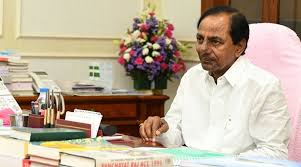www.siyasat.net news desk
By Mir Ayoob Ali Khan Hyderabad
Why Kalvakuntla Chandrashekar Rao (KCR) has decided to go for early assembly elections.
There could be at least three plausible answers: One, that he is uncomfortable because of the rising popularity of the Congress.
Two, that factor could turn into a real threat in case the Congress strikes a deal with the Telugu Desam Party (TDP). The two parties are in the final stages of talks about possible seat-sharing during the forthcoming assembly elections.
Three, that the not-so-covert relations between KCR’s Telangana Rashtra Samithi (TRS) and Prime Minister Narendra Modi’s Bharatiya Janata Party (BJP) could be put to the test if assembly and Lok Sabha elections are held at the same time.
Right now, like a cat lapping up milk with its eyes closed, KCR meets with Prime Minister Modi but does not say what has been discussed beyond the usual official description. But soon after such meetings, the TRS chief has ended up supporting the moves taken by the BJP. For instance, his unequivocal support on “note bandi”; or the absence of his MPs during the no-confidence motion against the BJP government in Lok Sabha.
There is yet another point. In case of simultaneous elections, his relations with the Majlis-e-Ittehadul Muslimeen (MIM) would have gone for a toss resulting in the exodus of Muslim voters from among his supporters. In that scenario, of the total 119 assembly seats he would have to forego chances of winning in about two dozen constituencies where the Muslim voter population is between 10 and 25 percent.
Though KCR has not fulfilled the promise of providing 12 percent reservation to Muslims in education and jobs, he has to his credit opened about 200 English-medium residential schools in the last three years for minority communities. An overwhelming majority of students, including large numbers of girls, are from economically deprived sections of Muslim society. The impact of this move is so overwhelming that the religious schools are reporting steep declines in their numbers of students.
KCR’s gamble for early elections is also based on the reports that the popularity of BJP at the national level is dropping. Therefore it would not be able to form the next government at the Centre on its own. There is a huge possibility that in that scenario he might opt to provide support to the BJP. The fallout from that possible alliance would have its own repercussions in his state.
Right now, KCR enjoys the “reputation” of a “secular” politician who is hobnobbing with the BJP on the sly. If he embraces BJP publicly, then he would not be the first “secular” politician to do so.
N. Chandrababu Naidu, chief minister of Andhra Pradesh, did that twice in the past and so did Nitish Kumar. These so-called secular politicians are more interested in serving their own personal interests than standing up for India’s tattering secularism.
































